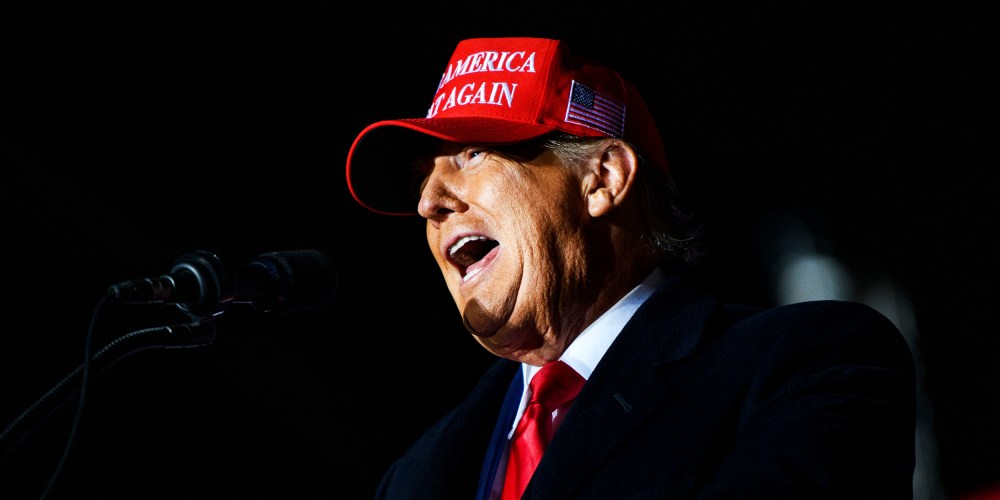On Tuesday, Georgia’s voters elected Democratic Sen. Raphael Warnock to a full six-year term. The outcome reaffirms the verdict the state’s voters rendered in November, when Herschel Walker became the only Georgia Republican running statewide to fail to capture a majority of the vote. As Axios’s Josh Kraushaar observed, Warnock’s victory “caps a historic GOP embarrassment,” with 2022 being the first midterm since 1934 in which the party in control of the White House retained every Senate seat it occupied.
What happened to the Republican Party is no mystery. The GOP knows it has a Trump problem. Indeed, since the former president announced his intention to run for president again in 2024, he’s made it far easier to jettison him into political orbit. Many Republican nonincumbents anointed by Trump — the celebrities, the neophytes, the soap-box agitators who wore their persecution complex on their sleeves — lost. Where MAGA candidates won, they did so narrowly while running far behind more conventional Republicans on the same ballot. His acolytes’ dismal performances, the grotesque company he keeps, and his ponderously lethargic campaign have given Republicans who pine for a post-Trump GOP all the ammunition they need.
What happened to the Republican Party is no mystery. The GOP knows it has a Trump problem.
But Trump has plenty of options at his disposal to defeat the Republican Party’s counterrevolutionaries. If the most salient argument against Trump among GOP voters is that he and his movement are electoral poison, Trump can convince his fellow Republicans that the GOP will suffer even worse losses if they abandon him. As Sen. Lindsay Graham explained last year, Trump could make the party stronger, but “he also could destroy it.” And what happens if he does not go quietly?
Trump’s tried-and-true tactic for inducing acquiescence among Republican Party elites would be to threaten an independent presidential bid if he seems likely to lose the nomination. That mere possibility produced a mad, humiliating scramble during his 2016 run. Then-Republican National Committee Chairman Reince Priebus tried to hem Trump in by compelling him to sign a “pledge” in support of the GOP and its candidates — a document Trump treated with deserved contempt. Priebus’s threat of “consequences” for failing to live up to this loyalty oath was empty then and emptier now: There are no credible “consequences” attached to violation.
The same apprehension that paralyzed the party in 2016 could immobilize the GOP today if Trump threatens to bolt with his share of the Republican base. Even if that warning never materializes, Trump can still make the party’s life miserable for its members. In fact, it’s hard to see how he doesn’t.

There are already signs that the Trump-friendly commentary class is retreating to the comfort of a fiction that has animated the insurgent right for well over a decade: that all the party’s shortcomings are due to the machinations of wreckers, saboteurs and deviationists within the Republican “establishment.” Fox News host Laura Ingraham, among others, blamed Walker’s failures in part on a lack of sufficient enthusiasm for his candidacy among “Senate Republicans” and their leadership.
It seems of no consequence that Sen. Mitch McConnell’s Senate Leadership Fund poured $18 million into the runoff in Georgia when Trump, his allies, and even the National Republican Senatorial Committee, led by Florida Sen. Rick Scott, left Walker for dead. As Politico reported, though NRSC staffers boasted of spending “millions” for Walker in the runoff election, publicly available data indicates the committee purchased a measly half-million dollars’ worth of television advertising in this race.
The question before Republicans is: Who will put their careers on the line to stop that from happening?
In this telling, the insurrectionary right absolves itself of responsibility for their repeated failures of judgment. Already, the incoming House Republican majority seems committed to engaging in quixotic flights of fancy that provide Republican members platforms to grandstand upon, even if that only reminds persuadable voters that the GOP has no interest in governing. And the most quixotic of all lost causes is the one in which Trump is most invested: investigations into his enemies.













